Keily Blair, OnlyFans: ‘We are an incredible UK tech success story’
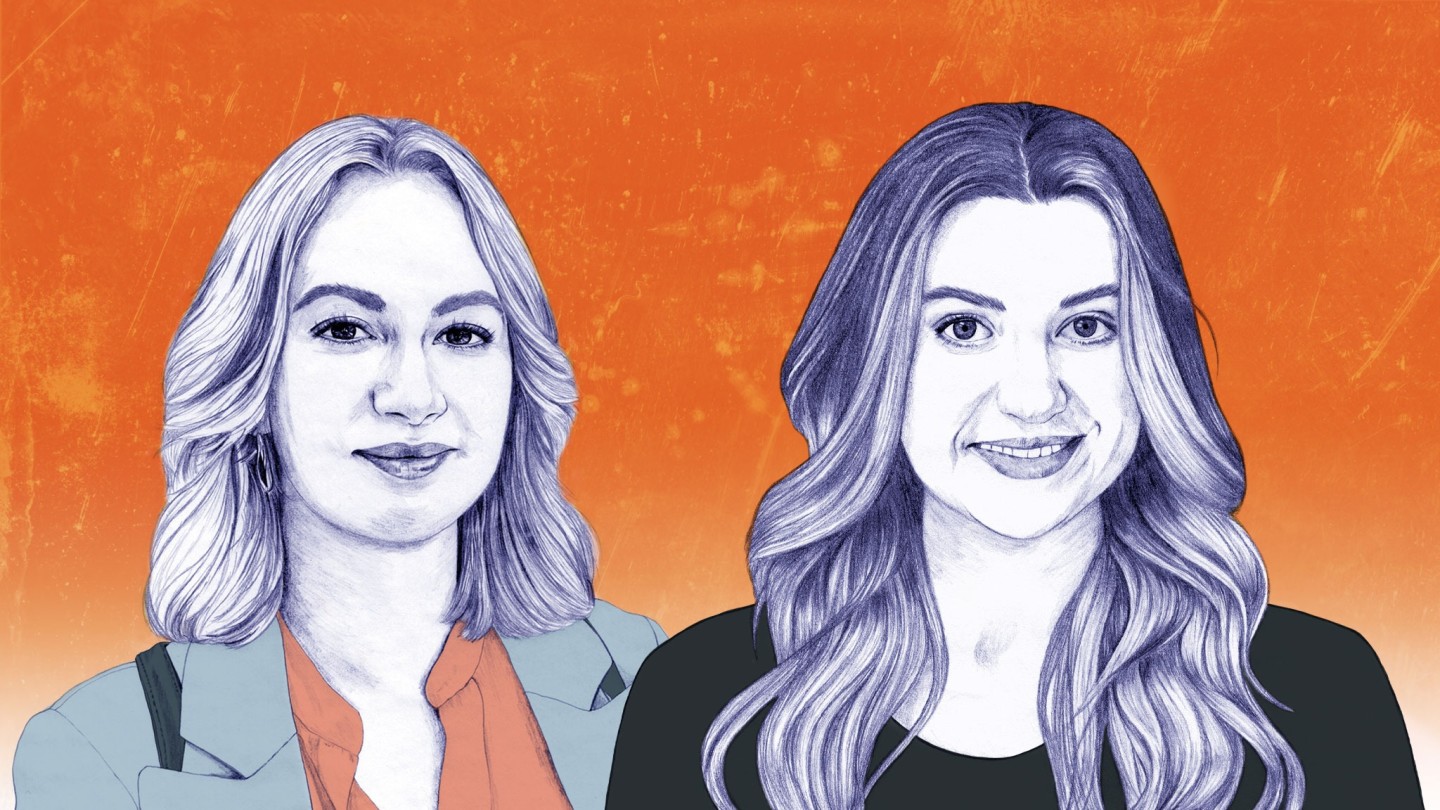
Simply sign up to the Technology sector myFT Digest -- delivered directly to your inbox.
Keily Blair is the chief executive of OnlyFans, an online platform where sex workers, sports stars and celebrities sell subscriptions for access to images and personalised content. It was founded by Tim Stokely and his father Guy in 2016 but sold two years later to Leonid Radvinsky, a Ukrainian-American entrepreneur and owner of porn sites.
Blair joined the London-based company in January 2022 as chief strategy and operations officer. She secured the top job in July 2023, taking over from Ami Gan, who had been in post for 18 months.
Payments made on the platform, which was founded in 2016, reached $5.6bn in 2022, with more than 3.1mn creators on its books and 238.8mn fans. OnlyFans takes a fifth of payments generated on the site.
The company has been scaling up its trust and safety measures, driven in part by the UK’s Online Safety Act, which forces adult sites to verify the age of its users through technologies like facial scanning or by cross-referencing with banks.
Blair — who was previously a cyber, privacy and data specialist at law firm Orrick, Herrington & Sutcliffe, where she had OnlyFans as a client — says that the platform has already done most of the work needed to comply with regulation. In this conversation with FT technology reporter Cristina Criddle, she discusses the negative perceptions of the site, the opportunities for creators who are not sex workers, and the reason OnlyFans will not be available in app stores.
Cristina Criddle: Why did you decide to take this role?
Keily Blair: I had the advantage of working for the business for a long time before taking on the role. I was its external counsel as well, so I know it quite well. [And] I think this is such a special company in terms of its place in the tech and social media ecosystem.
We’re so unusual because we’re a UK tech success story. Whenever I talk about the business, everyone automatically assumes that we’re based in the US. We’re happy to say, actually, we founded it in the UK, we’re still solidly in the UK, that’s where the majority of our exec team lives.
We’ve paid out over $15bn to creators since we started, and that’s increasing year on year. We continue to grow. We’ve done the FT’s Fastest-Growing Companies in Europe ranking two years in a row.
I think everyone was worried we’d be a pandemic bubble. We’ve proven that’s not the case. The company is also capable of doing so much for creators. That’s what excites me about the job.
Also, with my background in cyber and privacy and online safety, there’s a nerdy part of me that really enjoys the challenging landscape that tech companies face at the moment. I think I can help to reduce some of the risk that’s inherent in running a tech business, especially one that is open and honest about allowing adult content.
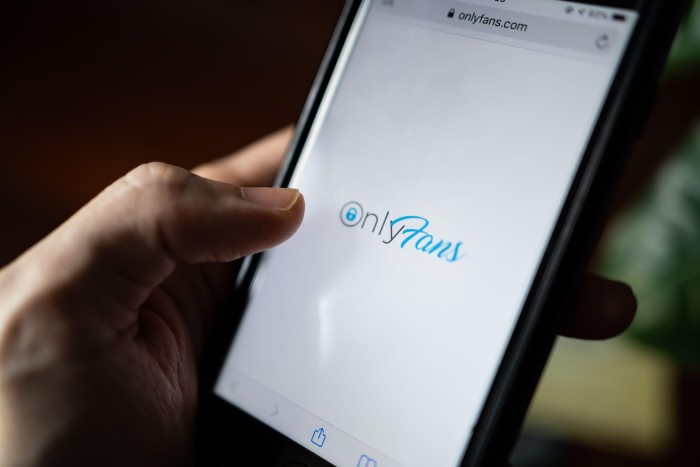
CC: You mentioned that you’re UK-based. Is that your largest market?
KB: Our largest market is the US. We don’t give a breakdown on a country-by-country basis, because creators can be based anywhere and it’s typically not what we do.
We pay our corporation tax in the UK. We’ve paid £250mn in tax since we started. In terms of the creator base, it’s a global one of 3mn creators, 2.2mn of whom have been active in the last six months — a good, active user base. Then, in terms of fans, it’s 220mn globally and, of that, 87mn have been active in the last six months.
It’s continuing to grow, continuing to be an exciting business. But we were founded in the UK, and we’re not skipping off to Silicon Valley anytime soon.
CC: Is the US somewhere you might consider an IPO one day?
KB: We’re not looking to IPO at the moment. People ask us all the time if we’re on a path to going public. For us, the bigger question is: why would we be on a path to going public? When most people look at an IPO, they’re doing it to raise funds. That’s not so much of an issue for us.
CC: Ami Gan brought you into the business, and I’m sure you worked with her very closely. But now that she’s left to run [advisory firm] Hoxton Projects, is there anything that you’re hoping to do a bit differently?
KB: Differently is always hard in tech because it’s a question of consolidating what we’ve built and, then, thinking about what the future opportunities are. For us, obviously we’re very proud of our adult-content creators, but it’s making sure that we also open up to other creators, so we’re doing new verticals.
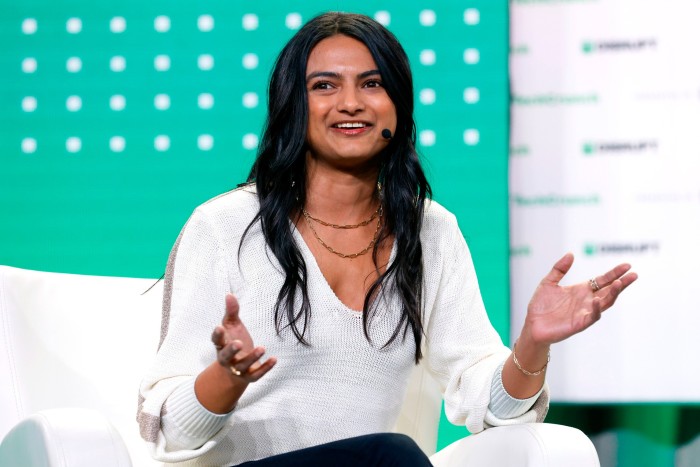
We’re sponsoring quite a lot of athletes, in particular in the MMA [mixed martial arts] and combat sport space. You may have seen [Australian tennis player] Nick Kyrgios launched his OF account at the end of last year. That was an incredible viral moment for the business: there were over 800 stories on the launch in 39 countries.
OFTV [a video site] is going to continue to be a focus for us in terms of thinking about growth. A lot of the time we’ll co-create content, so we will fund either partly or wholly some of the series, which helps creators to grow their fan base. January this year was another record month for OFTV with, I think, 23mn-plus views. It’s also about looking at potential licensing of that content to other streaming platforms.
Then there’s the payment side: how do you bring on new payment partners? There’s a couple of really interesting things in the works there, where we’re looking at alternative payment methods — not crypto, but things like Pix or particular local currencies.
And there’s the constantly moving landscape of online safety, where we’re already being regulated by [UK communications regulator] Ofcom under the video-sharing platform [VSP] regulation. That means we’ve got a jump-start on, frankly, a lot of other people, because we’ve already got a 100 per cent verified creator and user base and we’re already an over-18s platform — we already check ID, we already do all those things.
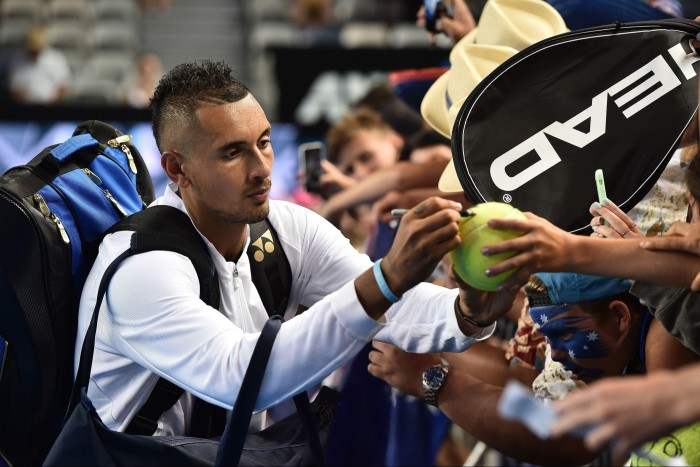
CC: I just want to go back to OnlyFans being a place for adult content. Would you call yourself a porn site?
KB: No: we’re a site that hosts adult content, but we also host a variety of other content. And a lot of the people who create adult content also choose to create other content, so maybe yoga and naked yoga.
Sites that are for adults should cater to all of grown-ups’ interests. Lots of people who are over 18 like sex, but they also like comedy and sports and music, so [it’s about] being able to cater to our audience base and to be able to provide opportunities for creators.
We don’t want to categorise people, so we don’t. That’s why we don’t categorise our content either. Creators are able to create whatever content they choose to, as long as it’s within our terms of service.
CC: I just wonder why you use the term “adult” rather than “porn”.
KB: “Porn” can be treated as quite a pejorative term. There’s a lot of people who would hear that and think one thing or another thing . . . Also, a lot of the content on our site is messaging or chats or talking about breakfast or talking about a variety of different things.
When we talk about this subject, it’s really important to be as unemotive as possible. The word “porn” has been wrapped up in some of the negative things that were the case for the adult-content industry, and we’ve done an awful lot to try and help adult-content creators to have a safe space on the internet and be treated with respect. That’s the reason why I don’t tend to use the P word.
CC: OnlyFans has done a great thing for sex workers by enabling them to monetise their content in a way that’s more ethical. What type of content do you consume on OnlyFans?
KB: So much, actually. We do encourage everybody who works with us to have an OF account, and I follow a variety of different people. I follow some adult-content creators like Becky Goodwin, for example, who’s UK-based and does some really hilarious parody videos. And I follow some of the sports stars that we’ve brought on, and some of the music stars, like Ivorian Doll. I love the comedy, like Whitney Cummings: Mouthy, [her show] is amazing.
CC: Obviously, you do see some of these different categories of content. But they are inherently sexualised and get more so as you get a subscription. I assume the funnel is into adult content ultimately, and that’s what people pay for the most?
KB: I disagree. There is no funnel. Content creators have the freedom to create the content that they want to. We’ve got lots who don’t produce any adult content, lots who only produce adult content, and then there are some people who are in the middle.
CC: What’s the proportion of people who don’t produce any adult content at all?
KB: We don’t categorise because we treat everybody as being over 18 and because we moderate all the content that we have. Because we treat all content the same as regards payment codes, etc, it’s not important to us whether the content is adult content, or Instagram-plus, or horseracing, or bike racing, or combat sports.
CC: From a business perspective, though, you must be analysing to see what’s most successful and brings in the most revenue.
KB: No, we don’t do that.
CC: That’s what most social platforms do.
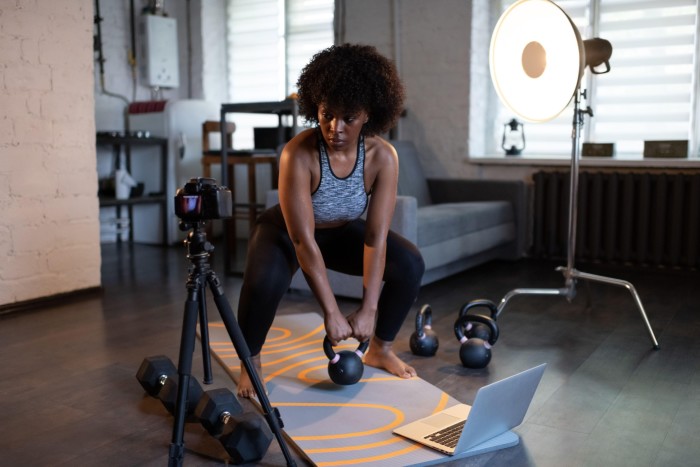
KB: Structurally, we’re very different to most social platforms and part of that comes back down to the fact that we’re a subscription-model business that’s behind a paywall. We think about the typical revenue generation for most of the platforms, and what matters most is engagement and the payment side of things: people being able to monetise their content.
It doesn’t matter to us what the content is that they’re monetising, as long as it’s within our terms of service. We’re not trying to encourage people to stay online more, or suggesting things to them, or using algorithms to look at their preferences.
One of the common misconceptions about the platform is that it’s like a lot of subscription platforms, where you pay a monthly fee and you have access to all the content. But that’s not the case. You have to choose which individual creator you subscribe to. That puts the user in control of their user journey and their experience and who they follow.
You asked why we don’t measure [creators’ performance]. Because it’s not important to us. We’re not promoting one creator or saying “like this” or “follow that” or providing a constant news feed of creators in that way. It’s a very different user experience. It’s not an important metric.
CC: So the personalisation comes when you get the subscriptions and you’re building that relationship with the creator?
KB: Yes, exactly.
CC: Yet, ethically, it brings up some questions. When I was chatting to my friends about OnlyFans, somebody told me that they support it because it’s a way for sex workers to make money — it’s ethical, the content on there is often less problematic than on other platforms. But they said that when their boyfriend was using it, he became very attached to the creators in a way that they didn’t feel comfortable with. I wondered if you had any perspective on issues like that.
KB: There was a really interesting study done recently which looked at the attitudes of OnlyFans users and creators to sex and relationships in comparison to society at large, and actually they were largely aligned. There’s no difference between OnlyFans users and everybody else who doesn’t use OnlyFans when it comes to how they perceive sex and relationships.
A lot of our lives are moving online. I have friends who I haven’t seen in years but I have an online relationship with, either through Instagram, or OnlyFans, or X. An important part of who I am is in my online personality as well as my offline personality. [And there’s] a degree of human connection and relationship involved in the creator and fan interaction. That’s what sets us apart from a lot of other platforms: there’s a fan club element to it, which is one of our USPs.
CC: But going back to the scenario that I described, do you think it’s changing people’s relationships in the real world?
KB: It would be really hard for me to comment on the dynamics of any individual’s relationship. I can’t say I’ve met your friend or their partner, and I obviously wouldn’t deny their experience. But I think to extrapolate that to a universal statement about society would be the wrong thing to do. All I would say is, ask yourself how would you feel if those messages were being sent on Instagram.
Relationships are complicated, humans are emotional creatures, and we all have different rules about what’s acceptable. There’s lots of people who choose to be open about the fact they have an OnlyFans account and share that with their partner, or their partner also has an OnlyFans account and they’re engaging with different people online.
CC: There have been reports in the past about creators on OnlyFans and in the adult industry more broadly who have experienced prejudice from financial providers — things like trouble getting mortgages approved. I wondered if you have had any similar experiences?
KB: I have had one experience where a bank has not wanted me to be a customer. What I am really happy about, though, is that the Financial Conduct Authority and the Treasury are looking at financial inclusion more generally — and looking to make sure that lawful businesses and individuals who have either a political view that somebody might not like, or a profession which is legal that somebody might not like, have access to the same level of financial service as everybody else.
CC: Was it a personal account?
KB: Yes. I think it was just an association with the business, but that happens.
CC: How did that make you feel?

KB: It’s interesting because of my background. I was an equity partner at a law firm, one of only a handful of women who was an equity partner, and I had a team of people working for me. That institution would previously have been incredibly keen to have my business. Nothing about me has changed, nothing about my risk profile has changed, but it was very interesting to see that prejudice come up. It kind of sucked, but it was a really good lesson for me, as well in some of the issues that our creators face.
CC: What’s the biggest challenge that the company is grappling with at the moment?
KB: We’re doing well financially: we grew 17 per cent last year, we’re expanding into different global markets, and [revenue was] just over $1bn last year. The challenge is some of the societal questions, and being able to give people the reassurance that we’re a responsible, ethical business that cares deeply about our creative community. But we’ve been working on that and have made great strides in our relationship with Ofcom, for example.
CC: What about artificial intelligence? I’m sure you’re seeing AI-generated content on your platform a lot. How are you approaching it?
KB: It’s back to that North Star of what’s good for our creators. When we look at AI, we look at it in two buckets. There’s how it’s used by our creator community, and then there’s operational efficiencies through AI in the business sense.
From the creators’ perspective, we don’t allow wholly AI accounts. That’s because every creator has to be verified as a real human before joining. They have to provide us with 10 different pieces of information in the US, nine everywhere else, including a government-issued ID, [plus] go through a check of all of their social media. That doesn’t work for an AI-created character. You can’t be a verified OnlyFans creator and be an AI character.
What you can do as a verified OnlyFans creator, though, is use AI to enhance your content — as long as you have the copyright to that material, you’re being clear to your fans that you’re using AI, and it’s obvious to us as a moderation team that this is an AI image of you that has been enhanced and not an AI image of somebody else.
CC: I guess with AI-altered images, a creator may still be using their face, but the body may be entirely different. You don’t know where the training has come from in order to generate that image, so, from a moderation perspective, how are you detecting it?
KB: Well, we moderate all of the content on our platform anyway, and one of the things that we pick up in our pre-check process is any content that looks like it may be underage. If someone was to take an image of themselves and modify it to try and look under 18, for example, that would be picked up in our pre-check.
That would be immediately sent for moderation by one of our human moderators, who’d then be able to go: ‘Here’s the previous content the verified creator has provided, this image is not good, it’s also not permitted on our platform because it appears to be somebody who’s under 18’. So that would be detected and taken down.
CC: It can still be really hard, even with a human.
KB: Yes, it can be really tricky, and that takes time. It’s one of the reasons why we have an AI working group within the business, which has got members of our legal team, tech team, and privacy team looking at this issue. The pace of change is so fast, and it’s something that we want to make sure we get right, but we also want to make sure we’re allowing that creativity as well.
The group’s also looking at the operational efficiency space, because AI presents huge opportunities there. Can it enhance how we deal with customer support? Can it enhance our ticketing or complaints process?
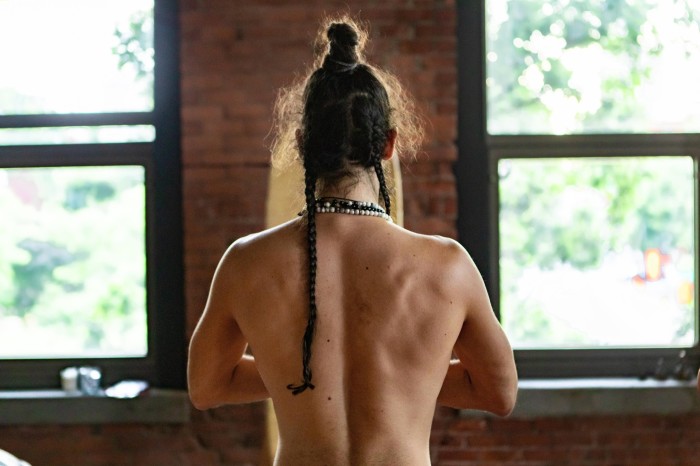
CC: Let’s turn to the Online Safety Act. You mentioned the UK’s video sharing platform regime earlier, and you’ve already made changes to the platform. How much more do you anticipate doing, to be compliant?
KB: The VSP regime has been in place for a couple of years, and the Online Safety Act will essentially transition away from it. We didn’t actually make that many changes to our platform under the VSP regime. A lot of the safety measures were already in place.
Now, we’ve got better at sharing those with Ofcom. We’ve got a much better continuous dialogue with them as our regulator. It’s very productive. They make suggestions for us, we think about them, we will often implement them and we’ll be able to feed back to Ofcom about the effectiveness of some of those suggestions.
As for what more we will have to do: because we already verify creators, because we already moderate our content, and because we’re already very safe in thinking about appropriate access and not allowing harmful content, we [will] have to do a lot of paperwork, essentially [to confirm that we are compliant].
Our legal team are going to be very busy looking at risk assessments and replying to information notices and things along those lines. But, in terms of big operational shifts, there’s not really that many that we have to do to be ready for the Online Safety Act.
CC: Do you think that that’s primarily because you are for over-18s?
KB: I think that does make our life simpler as a platform. Where you have a variety of different user groups, then you have to think about safety and risk across the space. A five-year-old or an 11-year-old should be accessing very different content to an 18-year-old. If you’re a site that is available for those age groups, it’s much harder to think about age gating and appropriate content.
CC: Do you think it will remain only for 18s and over?
KB: Yes. There are some spaces which should be spaces for adults. This is one of them.
CC: I’m sure you get asked this all the time, but why aren’t you on the app stores? Are you ever going to be on the app stores?
KB: I believe there’s a 30 per cent “tax” on being on the app stores. Because we have quite successfully developed a good mobile interface, we don’t need to use the app store in that way and, frankly, we’d rather keep the revenue.
CC: What do you make of potential rivals? X, for example, has a lot of adult content, and has talked about monetising it, having a paywall.
KB: Imitation is the nicest form of flattery. It’s clear that our business model works, so it’s not surprising that other people then go: “Hmm, wonder if we could get a slice of that, too?”. Especially if they’re under pressure from advertising revenue streams being impacted. [Some large advertisers have withdrawn from X in recent months.] It’s not something I sit up all night worrying about.
There’s a recent report by Kajabi, which is another creator platform, and they were looking at the number of diversified revenue streams that creators have, and most creators are on most social platforms. It’s very rare to have an OnlyFans creator who’s just on OnlyFans. Creators are businesspeople, ultimately, and they’re looking at the most effective ways to monetise their content and connect with their audiences, and not every audience will be on every platform.
CC: I know that you’ve looked at other revenue streams, including social commerce. What do you think of the advertising model? Do you think that there is still a place for it?
KB: You’re asking a privacy lawyer what they think about the advertising model. I think the advertising model is quite fraught. I think it can lead to a lot of some of the more insidious online behaviours [because of] the need to grab eyeballs and keep people’s attention. Will we go down that route as a platform? There are absolutely no plans to do that. We don’t need to at the moment.
What we’re actually seeing with payments on our platform is a move away from the more traditional subscription model to more microtransactions. So more tipping, more individual content, more pay-to-unlock messages — things along those lines.
That’s a very interesting trend because, again, that’s a place where you’re giving users control of their spending, of how they interact, of what content they have. Because there are some streaming platforms that I have memberships of and I probably watch three shows on them and yet I still pay for the entire membership. That’s a universal experience, [so] I do think we’re going to see more microtransactions.
CC: One last question: what’s the one thing that you want to achieve while you’re chief executive?
KB: I want people to recognise the business for what it is, as an incredible UK tech success story. I want that to be transformative for our creators.
I want every single OnlyFans content creator to be able to open a bank account wherever the heck they want to. I want people to be able to talk about it if they produce adult content, to produce it in a way that’s safe and ethical, and not to be discriminated against or treated badly online or spoken down to or have people being mean to them at the school gates. That’s what I’d like to achieve.
If I can do that, help all the different stakeholders to really understand the business and to recognise the success and to treat our creators with respect, then that would be a win.
The above transcript has been edited for brevity and clarity
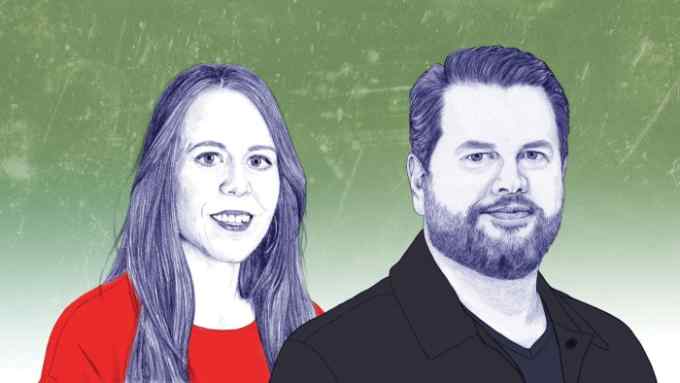
Comments